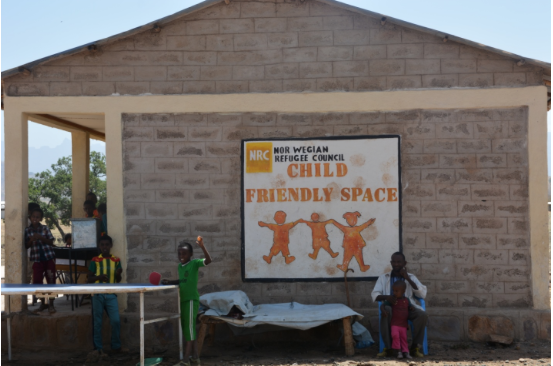
An eleven year old boy is supposed to go to school, come back after and ask his mother for something to eat, and then rush outside to play with his friends. An eleven year old is supposed to leave all the worries of life to his mom and dad. An eleven year old is supposed to smile instead of spending his days and nights deep in thoughts. He might help his mother with house chores or collect firewood for dinner. He might not be too young to attend to the goats and cows in the meadow, but he is way too young to even dream of risking his life to change his family’s life.
Unfortunately, Eritrean boys like eleven year old Henok take a big risk by crossing borders to come to Ethiopia, in the hope that they will get a chance of resettlement or cross the desert and ocean to reach the western world.
Henok Mehari is only eleven but already attempting to carry the world on his shoulders. All he thinks about is what his life will be like in the future when he goes “out” of the country. “Out” is the word everyone uses in the Ethiopian refugee camp to refer to European and other western countries. Henok, like many other young Eritreans who have sought refuge in Ethiopia, is focused on going “out” no matter what it takes. He knows very little about the risks involved or the amount of money he needs to pay to cross borders and reach his dream destination.
Henok grew up looking at young boys and girls walk past the meadow where looked after the goats and other animals, on their way to crossing the border to Ethiopia. He heard talk in the neighbourhood of going to European countries and how the best route is to first go to Ethiopia.
One day, Henok saw a group of youngsters walking towards the border and followed them without thinking. The young shepherd left home without his mother’s knowledge.
It has been a year since he came to Adi Harush refugee camp in the Tigray region of Ethiopia. He has no regrets, but he misses his home, his mom and his brother every second.
“I didn’t tell my mother because I was afraid she might say no. She will be disappointed for a while, but she will be OK knowing that I am going to a rich country to help her and my brother,” Henok says without hesitation.
Even though he looks young, he seems to analyse the situation around him. “Life is hard in the camp, but I have lived in poverty since childhood, so it doesn’t bother me much,” he says. Henok goes to school in the camp. His favourite subject is science and his other life dream is to become a teacher when he grows up.
Refugee children in camps
Henok is being taken care of in a community care centre that the Norwegian Refugee Council (NRC) has set up for unaccompanied and separated children in the camp. There are children as young as five in the in the refugee camps of Tigray, Ethiopia. NRC is one of the organisations that provide assistance to these children.

Children playing table tennis in the Child friendly space in Adi Harush Camp, Tigray region Ethiopia. The Child Protection Programme is funded by UNHCR. Photo: NRC/Emebet Abdissa
NRC assists unaccompanied and separated children in Ethiopia through our child protection programme, providing community care as well as kinship and foster care arrangements. Finding family care givers, including foster parents, is a challenge partly because of lack of concern in the community or fear of economic burden. Despite of this and other challenges, NRC, in collaboration with UNHCR, Ethiopia's Administration for Refugee and Returnee Affairs (ARRA), and community leaders is able to identify foster care givers and relatives willing to care for children.
NRC prefers that refugees that already have kids of their own become guardians and foster parents for the separated and unaccompanied children. “They have gone through the ups and downs of raising a child and they know what to do in most situations. They also know that children need to be loved and to be listened to. It is for these reasons that NRC does the selection very carefully,” says NRC child protection programme coordinator, Mrs. Hanna Aychiluhem.
Some children need additional help, and NRC hands out milk powder, shoes, clothes, facilitation of care arrangement and counselling depending on the specific case needs. NRC can also refer children to other agencies who help with trauma counselling, resettlement and other psychosocial support.
Most separated and unaccompanied children do not have a strong wish to attend school. Their minds are fixated on travelling to a western country, even though only a small percentage of refugees are resettled, according to UNHCR. However, those who are under foster and guardian care have better chances of attending school as they are always supervised.
Henok likes the group of people he currently lives with. He says it makes him feel like he has all it takes to face the challenges of life. He goes to school and gets assistance from aid organisations like NRC. Still, he is always thinking about going “out” even though he doesn’t have the money or any relatives living in Europe or other western countries that he can rely on for financial support. Henok doesn’t know what will await him in the foreign land or how to get there. All he knows is that other people are doing it and he will not pass the opportunity when it comes his way.

